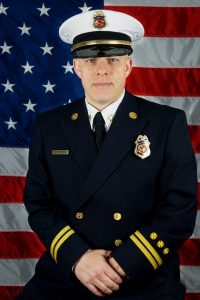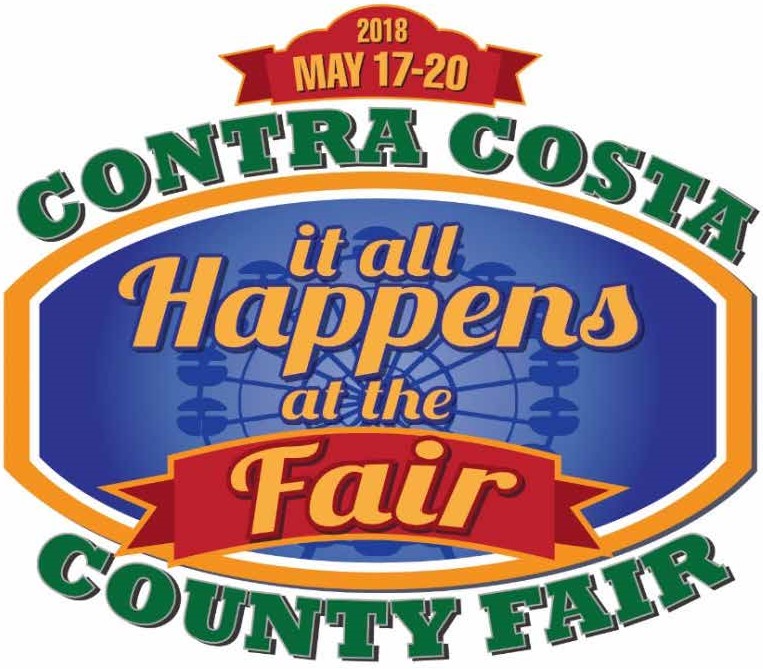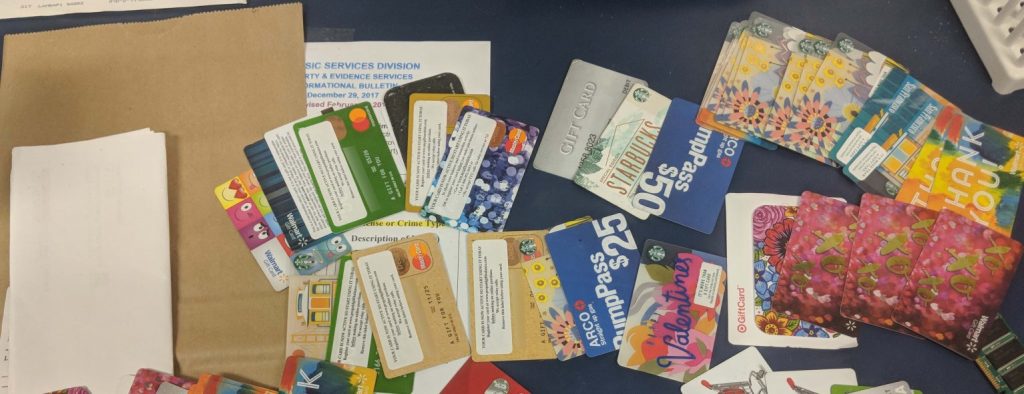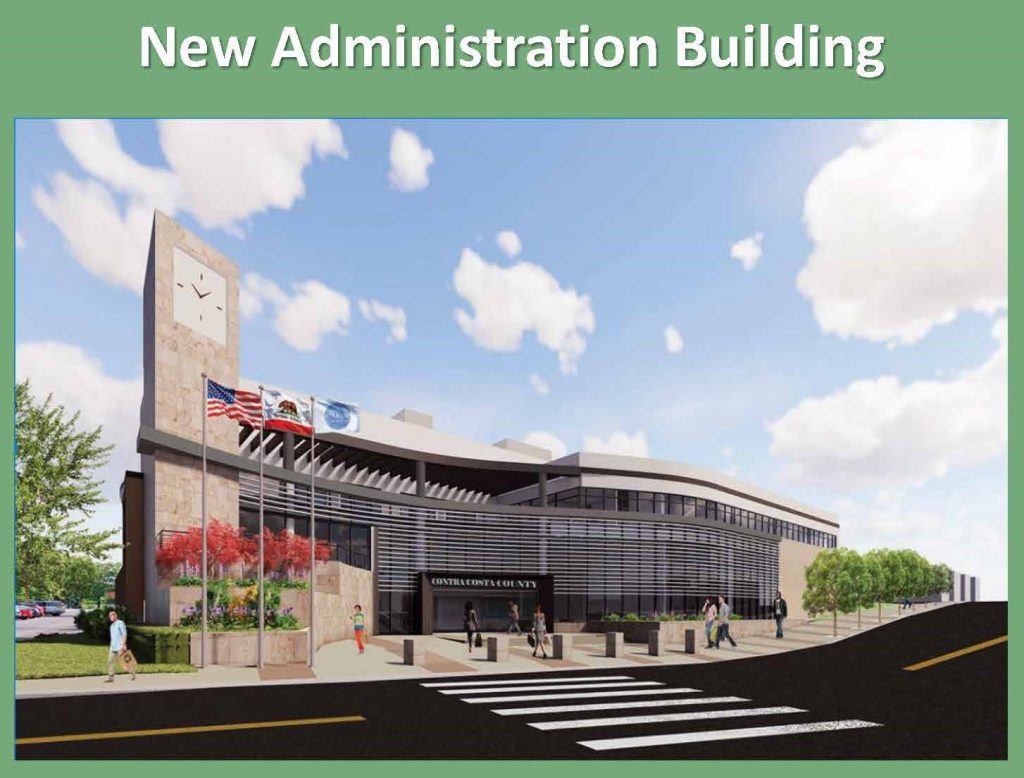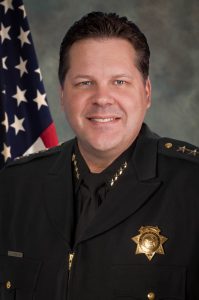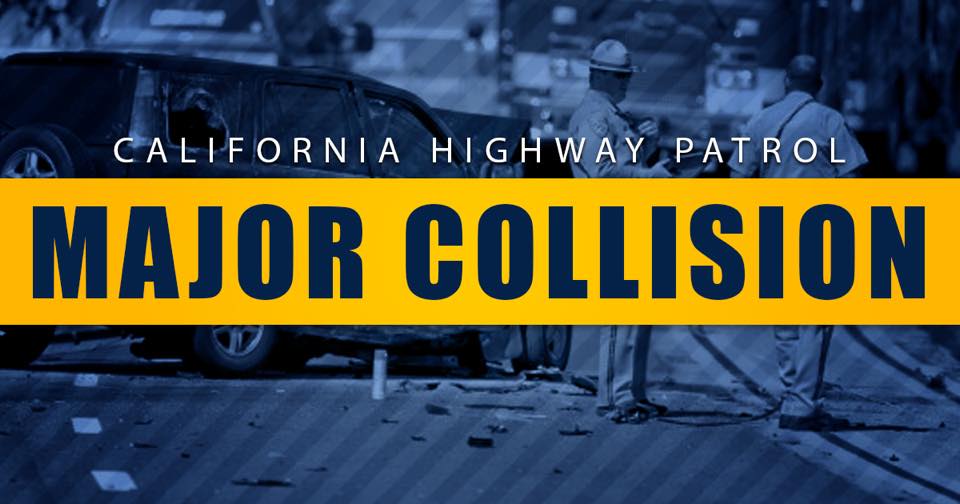Low-income housing in the county “stagnates”
Voters in the financially challenged East Contra Costa Fire Protection District convincingly decided in a mail ballot election concluded on March 6, to shrink the number of board members from nine appointed directors to five elected directors.
Contra Costa County Board of Supervisors certified the election results as presented by Contra Costa County Clerk-Recorder and Registrar of Voters Joseph Canciamilla as a consent item at Tuesday’s supervisors meeting.
Of the 64,351 ballots mailed to registered voters residing in the ECCFPD, county election officials received and tallied 11,772 ballots or 18.29 percent of the total ballots mailed.
Of those ballots returned and counted, 90.46 percent or 10,605 votes were in favor of changing the board from nine chosen board members to five elected directors. Only 1,119 votes or 9.54 percent of the of the ballots returned wanted to retain the present setup of nine appointed ECCFPD board directors.
Results of the special election means those wanting to serve on the ECCFPD board of directors will have to run for office in the November 6 general election. Winners will be sworn into office on December 3.
The ECCFPD board presently has four directors appointed by the Brentwood City Council, three directors appointed by the Oakley City Council and two appointed by the Contra Costa County Board of Supervisors.
By transitioning to an elected board of five directors, the ECCFPD will be in step with other policymaking boards like the city councils of Brentwood and Oakley and special districts such as park, water and irrigation districts, said ECCFPD Fire Chief Brian Helmick, who oversees the $15 million a year fire district that operates three fire stations and a Marsh Creek station under contract with CalFire from November through April.
There are plans for the fire district to operate as many as nine fire stations.
Historically, the ECCFPD has been hammered with financial mismanagement issues that have hampered its fire effectiveness due to the closure of fire stations and the departure of seasoned firefighters who join fire districts offering better pay and benefit packages.
Under a five-person elected board, Chief Helmick says the district can convey a more consistent and solid financial picture about the ECCPFD than under the current nine member appointed board.
“The election results will bring efficiencies and more effective communications to the general public about the district’s direction,” Helmick told the Herald. The fire chief said a newly elected board of directors will play a key role in the roll out of the fire district’s new strategic plan. A consultant is slated to present a mockup of an ECCFPD strategic plan at an April 9 meeting, Helmick said.
“I am excited to see that voters supported the East Contra Costa County Fire Protection District’s plan to move from nine members to five,” said District 3 Board of Supervisor Diane Burgis of Brentwood. “Nearly 12,000 people cast ballots and over 90 percent of them voted for the district’s initiative. That level of engagement and confidence shows that the district’s efforts to communicate more actively with residents and to be transparent about the district’s challenges are paying off. Chief Helmick and the board are making their case to residents and building the right foundation for the future.”
Report: County Housing for Low and Very Low-Income Residents “Stagnates”
Contra Costa County’s production of new housing units built for families in low-and very low-income categories continues to “stagnate” while permits issued for the construction of above-moderate income housing units continues to soar, a new housing report approved by the Board of Supervisors reveals. CoCoCo 2017 Annual Housing Report
In order to be in compliance with annual housing regulations set by the Association of Bay Area Governments, California Department of Housing and Community Development, and California Office of Planning Research, the Contra Costa County Conservation and Development Department’s annual report prepared by Christine Louie reported, “While the county has made significant progress in achieving gross housing production goals, production of new housing units available to households in low-and-very low income categories continues to stagnate.”
Last year, the report states, the county issued three permits for new units available to low-and very-low income households. Through the first three years of the current housing cycle only 11 such permits have been issued, constituting 1.2 percent of the total building permits issued for new units.
Discrimination, high land acquisition and construction/development costs are key factors for the county’s low housing production for low and very low-income households.
“Through the first three years of the current housing cycle, the total number of units for which the county has issued building permits is 856 units, which includes 11 low-income units, 14 moderate income units and 721 above-moderate income units,” the county housing report stated.
Last year, the county sponsored a number of subsidized housing programs designed to increase affordable housing. Among the housing programs the county sponsored were:
- The issuance $19.5 million in tax-exempt bonds for the rehabilitation of 114 units in unincorporated Bay Point and the city of Richmond.
- The release of $146.8 million in tax-exempt bonds for construction of 376 new units in the unincorporated community of North Richmond and the cities of El Cerrito and Richmond.
- The issuance of $100,000 in Community Development Block Grant funds for an 82-unit senior housing project in the city of Pleasant Hill.
- Providing $625,000 of HOME funds to support rehabilitation of a 14-unit apartment complex in Bay Point.
Neither the supervisors nor general public commented on the annual housing report that was approved as a consent item on the supervisors’ agenda.
Read MoreOver the past year, the East Contra Costa Fire Protection District (ECCFPD) has worked on assuring that we are sustainable, operationally sound, and living within our means. Today, approximately one year into the District’s reorganization, we are beginning to see the fruits of our labor. We have been able to stabilize the District’s staff retention challenges and have started to define better administrative and operational processes. Although the District is not able to provide service levels that adequately protect the community’s residents at this time, we are well on our way to building a solid foundation from which service levels can be efficiently increased when the residents move to provide additional revenue.
While the District continues to stabilize and reinforce our foundation, we also will begin to prepare for growth. The District will start by investing in infrastructure (apparatus, equipment, and stations) in accordance with the District’s equipment and capital improvement plan. Historically (since 2002) the District has not adequately invested in its infrastructure, directing all available funds to attempt to retain a fourth fire station. Unfortunately, a fourth station is not sustainable with our current revenues, and deferred investment in the District’s infrastructure has created many challenges. District assets’ state-of-repair needs to be addressed to assure that ECCFPD is providing services as efficiently as possible now, and also preparing for future growth.
Indulge me for a moment as I explain why investing in infrastructure is vital for ECCFPD to be sustainable and to prepare for future growth.
Let’s start with our stations and how they relate to our service model.
 The District currently has three open stations and is running at capacity with three personnel per station, per shift, for a total of nine firefighters on duty at any given time. With this three-station model, it is impossible to provide a high level of service in terms of response times throughout the District. Our system is very dynamic, and its’ limited number of engines are frequently out of the stations on calls. Occasionally, none are available for a new call and service must come from outside the District, so one cannot assume that being close to a fire station assures a rapid response. That means that the best response times are available to those nearest to a District engine at the time of their call because any or all three of our engines may be out of their stations on calls in Marsh Creek / Morgan Territory, Bethel Island, Discovery Bay, Knightsen, Oakley, Byron and/or Brentwood.
The District currently has three open stations and is running at capacity with three personnel per station, per shift, for a total of nine firefighters on duty at any given time. With this three-station model, it is impossible to provide a high level of service in terms of response times throughout the District. Our system is very dynamic, and its’ limited number of engines are frequently out of the stations on calls. Occasionally, none are available for a new call and service must come from outside the District, so one cannot assume that being close to a fire station assures a rapid response. That means that the best response times are available to those nearest to a District engine at the time of their call because any or all three of our engines may be out of their stations on calls in Marsh Creek / Morgan Territory, Bethel Island, Discovery Bay, Knightsen, Oakley, Byron and/or Brentwood.
Now, imagine if the District were to receive additional revenue that would enable it to open six more stations, allowing it to achieve the recommendations in ECCFPD’s 2016 “Deployment Performance and Headquarters Staffing Adequacy Study” (https://eccfpd.specialdistrict.org/about-the-district). If the District had the budget, as the Fire Chief, I could quickly hire more firefighters. But the unfortunate reality is that the District does not have adequate stations, beyond the three that are currently staffed, to house additional firefighters 24 hours a day, seven days a week.
In addition to our three active stations, the District also has five shuttered stations, but none of them can be reopened without massive renovations – or, more likely, complete replacement. The shuttered stations were mostly constructed in the 1950’s and were never intended to operate full-time (24-hours a day, seven days a week). Instead, they were built for volunteer firefighters to gather and respond to emergencies, and to store equipment. For the past 15 years, the District has done everything it could to update the antiquated facilities in an attempt to turn them into livable stations that are suitable for full-time fire department operations. Unfortunately, we have taken them as far as we can, and each of the shuttered stations is at the end of its useful life. Today, these stations are used for storage or sit vacant; unless the buildings are rebuilt, they will never reopen as fire stations. The shuttered stations are in the process of being evaluated to allow the District to determine if the assets will become surplus and sold, or if the stations will be rebuilt. This assessment will be finalized as part of the District’s upcoming Strategic Planning process.
Based on the “Deployment Performance and Headquarters Staffing Adequacy Study”, the District should have four fire stations in Brentwood, three in Oakley, and two in Discovery Bay / Byron, and for the District to continue its contract with Cal Fire to operate the Marsh Creek Station (Sunshine Station). The station locations were identified based on population, growth, and access to main roads to ensure response times are the best possible. The priority and process for opening future stations will be finalized during the District’s upcoming Strategic Planning process. Meanwhile, the District is already working with the cities of Brentwood and Oakley to build new stations now to prepare for future growth.
Second, let’s look at fire-fighting equipment. In addition to having an inadequate number of stations and crews, the District’s equipment is outdated, breaking down, and no longer meets National Fire Service recommended operational standards. Like the stations, during the economic downturn maintenance and replacement of fire engines and equipment was deferred. At this point, the District’s deferred maintenance and replacement practices have caught up with us and are impacting our service.
The District’s three front-line (“first-out”) engines are more than 10 years old and have racked up more than 100,000 miles of service. The fire service industry standards are to transition first-out fire engines to reserve status at either 10 years or 100,000 miles. In addition, most of the equipment on our engines is from 2001 and needs replacing. For example, the District is currently preparing and submitting grants to replace and update the District’s 17-year-old vehicle extrication equipment (“jaws of life”). If received, the grants will allow the District to replace this essential equipment on all three first-out engines, updating the mechanics from the old-fashioned hydraulic hoses hooked up to heavy equipment to modern battery-operated equipment, which is much lighter and faster to operate during rescue situations. The District also is on the look-out for grant opportunities to fund many other types of equipment replacement.
ECCFPD’s current service capacity is not acceptable in the near-term, and is no recipe for long-term success. This is why ECCFPD is in the beginning phases of creating a Strategic Plan that will define the path and cost to meet the response and staffing levels defined by the 2016 Deployment and Staffing Study. As the Fire Chief, I firmly believe that our Fire District is a critical part of our community that cannot be neglected and allowed to fall into disrepair.
To conclude, while the District continues to stabilize and reinforce our foundation, we are beginning to prepare for growth. Once the District’s Strategic plan is finalized, ECCFPD will explore funding options to meet the recommendations as defined by the Strategic Plan and the 2016 Deployment and Staffing Study. The future level of fire protection service will be decided by the voice of the District’s citizens. As ECCFPD moves forward, I will continue to work within our budget to provide the best service levels possible with the funding we have.
Sincerely,
Brian Helmick
Fire Chief, East Contra Costa Fire Protection District
Read More Imagine the thrill of winning a blue ribbon at the Fair for a special talent. Think you own the best pig, bake the most delicious apple pie, made a beautiful quilt, or have an uncanny knack for making crafts? Want to see who’s the best in all of Contra Costa County? Then be sure to enter the Contra Costa County Fair’s competitive exhibits. Entry information is available on the Fair’s website at www.contracostafair.com
Imagine the thrill of winning a blue ribbon at the Fair for a special talent. Think you own the best pig, bake the most delicious apple pie, made a beautiful quilt, or have an uncanny knack for making crafts? Want to see who’s the best in all of Contra Costa County? Then be sure to enter the Contra Costa County Fair’s competitive exhibits. Entry information is available on the Fair’s website at www.contracostafair.com
It all Happens at the Fair May 17th – May 20th which is sure to be a fun event for children of all ages, with new exhibits & entertainment, the carnival, livestock and the always popular Fair food. Money saving pre-sale tickets will be available starting April 27, and ending May 13.
For additional information visit our website at www.contracostafair.com, call (925) 757-4400 or or like them on Facebook. The Contra Costa County Fair is located at 1201 West 10th Street in Antioch.
Read More
Westboro Baptist Church protesters. Photo: Westboro Baptist Church website.
Controversial Kansas church to protest churches and a school in Contra Costa
In their public statement in response to an announcement by the Westboro Baptist Church (WBC) of Topeka, Kansas to target four churches and a school in Contra Costa County this weekend, the Interfaith Council of Contra Costa County stands in solidarity with those congregations and schools in our county that the WBC plans to visit this weekend.
Four press releases on their Picket Schedule page of their website state, “WBC to peacefully preach Jesus Christ, with great zeal, love & fervor at four locations in Walnut Creek, CA on Sunday, March 25th”. A fifth press release states, “Lord willing, WBC will bring the name & message of Christ Jesus to Rancho Romero Elementary School” in Alamo, on Tuesday, March 27th.
That last press releases gives an explanation for the protest stating, “A horrible thing has happened in the land and we must warn the children at Rancho Romero Elementary School, because they deserve to hear the truth for once in their lives! ‘A wonderful and horrible thing is committed in the land; The prophets prophesy falsely, and the priests bear rule by their means; and my people love to have it so: and what will ye do in the end thereof?’ (Jeremiah 5:30-31) From the cradle, your parents, teachers, preachers and leaders have all lied to you. They all told you that there is no standard in the earth, and that God’s commands are merely suggestions, if they spoke of them at all. The worst part is that they did this horrendous thing to you to justify their own sins. The result is that you are left rudderless and without a polestar in this sea of lies with absolutely no hope in life, nor any hope of heaven when you die.”
The school is part of the San Ramon Valley Unified School District.
The WBC is listed as a hate group by the Southern Poverty Law Center, which tracks such groups nationally. They proselytize all those groups who don’t believe like they do. They have been known to attempt to entrap municipalities or counter protesters for “not protecting their first amendment rights of free speech” in order to bring law suits against them.
A press release from the Interfaith Council and East County Shared Ministry, offered the following information about the protests and proposed response:
The Interfaith Council stands with all of those who peacefully use their first amendment rights of the freedom of religion and the freedom of association and assembly as they attend the faith community of their choice. We call all Americans to honor the choices others make as to how, when or where to worship according to their own consciences. We call not only for tolerance of other people’s religious freedoms, but for respect, care and love for our fellow Americans as they do so.
The four congregations in Walnut Creek (St. Paul’s Episcopal Church; Mt. Diablo Unitarian Universalist; First Church of Christ, Scientist; and St. Mary of the Immaculate Conception) being targeted by the WBC ask that people who join them in solidarity focus on our common love, whether it be with those with whom you agree or those with whom you disagree. Most congregations won’t have a direct response and are encouraging members not to respond to the protesters directly, but to have a gentle, peaceful or silent response if at all. Another way to support these congregations in this peaceful witness is to join them inside for their services, where you will be most welcome.
The churches and the school are most interested in being able to be left alone to worship and carry on normal school functions, so we are not encouraging a large crowd. The idea is not to give WBC the attention they crave.
WBC has contacted the police in each city, who have created plans for where the protesters will be allowed to stand. The police will keep the driveways and walkways open. The police have been told it will be four people with many offensive signs, but we don’t know how many local protesters they may have recruited so it could be more.
If anyone comes to counter protest, please know that the congregations are united in responding with love, peace and grace and ask you to honor and follow their approach. Parking will be quite limited near some congregations, especially those on the dead-end street of Eckley Lane, where only street parking may be available to preserve enough space for congregation members.
The Rancho Romero Elementary School in Alamo, where the WBC will be protesting on Tuesday morning, March 27, is in a residential neighborhood without enough room to park and is usually quite crowded as students are being dropped off for school. Those wishing to be a peaceful presence will be dressed for the weather and using rainbow umbrellas to block the hateful message of the protesters. They will be meeting early to park a mile to the north in the Safeway shopping center parking lots and walking south on the Ironhorse Trail as there are no safe sidewalks on Danville Blvd to walk there upon.
East County Shared Ministry (Community Presbyterian Church of Pittsburg and First Congregational Church of Antioch) stands in solidarity with those congregations and schools in our county targeted by Westboro Baptist Church (WBC).
Again, parents are asking that no counter protesters attend unless you make a commitment not to verbally or physically engage with WBC and be a part of their peaceful, protective presence. A large crowd will not be necessary to ignore them and protect the children. If you must attend, please follow these guidelines they have laid out:
The Rainbow Umbrella Mindset
- Focus on Loving Kiddos & Ignoring WBC
- #1: Do not engage with WBC. If you find ignoring WBC challenging, please stay home.
- Show up in solidarity for all kiddos in our community.
- Turn your back on hate. Get to know your neighbors.
- Model positive adult behavior, not only for the small kiddos but also especially for the high school students, who may attend. Fold in the young adults, keeping things under control. Take this opportunity to talk to them.
- Love in Action is Safe, Not Angry or Scary
- Think quiet, calm, reassuring, warm, and relaxed.
- Think smiles, waves, laughter, and singing.
- No yelling, no chanting, and no anger. (If this sounds hard, please stay home.)
- Send loving messages (verbal/clothing/signs), telling all children that they are safe and celebrated.
- Protect the School by Staying Off School Property
- Be a barrier of love that shields the school.
- Be aware. Please do not go on school property for any reason.
- We are not guests of the school. They are not hosting us.
- Keep cars parked far away, using trail access to avoid Danville Blvd.
- Leave the Area Better than You Found It
- Backpacks are best.
- No bathrooms will be available.
- Be a good neighbor by bringing a trash bag to clean up litter at the end.
- Help minimize any disruption or additional clean up for the school, the law enforcement support, and the surrounding neighborhoods.
About the Interfaith Council of Contra Costa County
The Interfaith Council of Contra Costa County (ICCCC) is an autonomous local organization solely governed by its own Executive Committee, elected by the membership at the Council’s annual meeting. There are over 100 congregations and organizations holding membership and affiliation from a wide range of Christian and other faith traditions throughout Contra Costa County, including Jewish, Buddhist, Baha’i, Unitarian, Islamic, Sikh, Unity, Latter-Day Saints, and Religious Science.
About East County Shared Ministry
East County Shared Ministry consists of Community Presbyterian Church of Pittsburg and First Congregational Church of Antioch. ECSM recognizes, celebrates and gives thanks for the many diverse gifts of God among us. All are invited to participate in community and worship life including, but not limited to, believers, seekers, agnostics, women and men, those of all sexual orientations and gender identities and expressions, those of all races and cultures, those of all classes and abilities, those who hope for a better world and those who have lost hope.
Read MoreThe Diablo Valley College-Pleasant Hill Campus will reopen and resume all scheduled classes, student services, and activities on Friday, March 23, 2018. The San Ramon Campus will resume its regular schedule of Friday closure.
As a precaution, all classes and college activities at the Diablo Valley College (DVC)-Pleasant Hill Campus were cancelled today, March 22, 2018, due to a potentially serious threat made against the campus.
The college found graffiti threatening the use of a firearm on the DVC-Pleasant Hill Campus. The situation is under investigation and so we are unable to share any further details at this time. DVC staff and students have been notified of this decision. All classes at the Diablo Valley College-San Ramon Campus, Contra Costa College, and Los Medanos College, are continuing as scheduled.
The safety of our students, faculty and staff is our top priority. Additional information will be placed on the college website at www.dvc.edu as it becomes available and so we are unable to share any further details at this time. DVC staff and students have been notified of this decision. All classes at the Diablo Valley College-San Ramon Campus, Contra Costa College, and Los Medanos College, are continuing as scheduled.
The safety of our students, faculty and staff is our top priority. Additional information will be placed on the college website at www.dvc.edu as it becomes available.
Read MoreWoman had warrant out of Alameda County
By Jimmy Lee, Director of Public Affairs, Contra Costa County Office of the Sheriff
In the early morning hours of Tuesday, March 20, 2018, a Deputy Sheriff patrolling Discovery Bay conducted a traffic enforcement stop on the 4000 block of Regatta Drive. The Deputy contacted the female driver and determined she had a $220,000 arrest warrant for identity theft out of Alameda County.
A subsequent search of her vehicle yielded what appeared to be stolen mail, altered checks, numerous suspected stolen gift cards, a stolen laptop, and some official documents that included tax forms and IRS vouchers.
The suspect was booked into the Martinez Detention Facility on forgery and receiving stolen property charges, as well as the arrest warrant. She is identified as 41-year-old Sarah Potter of Hayward. She is being held in lieu of $260,000 bail.
Anyone with information regarding this case is asked to contact Sheriff’s Office Investigation Division at 925-313-2600. For any tips, email: tips@so.cccounty.us or call 866-846-3592 to leave an anonymous voice message.
Read MoreApprove $95 million for new county administration building
By Daniel Borsuk
Community activists wanting Contra Costa County Supervisors to launch a probe into the way Sheriff-Coroner David O. Livingston operates the Martinez jail and the West County Detention Facility, the site of numerous allegations of inmate abuse, hit a brick wall on Tuesday as supervisors refused to conduct their own investigation into how the jails are operated by the sheriff.
Livingston, an elected countywide official, is up for re-election in June, but when the March 9 filing deadline rolled around no one had filed to oppose the sheriff in the upcoming June 5 primary election.
About 12 speakers asked supervisors to launch an investigation into Sheriff Livingston’s jail practices, even when two independent investigations, one that United States Senator Diane Feinstein has asked the United States Immigration and Customs Enforcement (ICE) to undertake dating back to December and another that California Attorney General Xavier Becerra is conducting, have yet to reveal their findings.
The Contra Costa Sheriff has come under fire from human rights organizations for the way he has treated male and female inmates at the North Richmond and Martinez jails. At the West County facility female inmates under ICE custody have been allegedly mistreated whereby they cannot use restroom facilities forcing them to defecate in their clothes or in plastic bags. The sheriff has also been criticized for having a contract with the U.S. Marshall’s Services and for vocally opposing interim District Attorney Diana Becton, the Board of Supervisors’ pick as DA. Becton is up for election in the June primary election against senior district attorney Paul Graves, lawyer Lawrence Steven Strauss and Concord attorney Victor A. Segovia.
Even though the sheriff is an elected official, some speakers demanded Sheriff Livingston’s immediate resignation.
“Twenty-seven women have complained of being abused under his administration. The sheriff should resign. You should at least launch an investigation of the jail,” said Melvin Willis, a Richmond City Councilman and a representative of the Alliance for Californians for Community Empowerment.
“It’s time for Sheriff Livingston to resign,” insisted Kathleen Everson of Walnut Creek. She said supervisors should conduct an independent investigation into the sheriff’s office. “It’s time to end the sheriff’s contract with ICE.”
“What’s up with you guys?” asked Linda Olivera of Community Initiatives for Visiting Immigrants in Confinement. “You need to show the initiative. This is your facility. This is a horrible sheriff.”
“I don’t think you guys are going to do a damn thing,” said Mercy Garetz of Hercules. “We’re going to where the money leads.”
“I’m waiting for the independent report from the state attorney general to come out either at the end of this month or next month before making any decisions,” said District 1 Supervisor John Gioia of Richmond.
Board chair Karen Mitchoff of Pleasant Hill acknowledged that state attorney general Becerra is conducting his investigation into the West County jail, but she also disagreed with statements made by Concord clinical psychologist Harmesh Kumar, who said the Sheriff’s Office has slashed mental health services because of county funding cutbacks. Mitchoff said the board will take up at its March 27 meeting a $3 million proposal to fund mental health services for the jails as a consent item.
Kumar is a candidate running for the District 4 seat that Mitchoff currently occupies. Also running for the District 4 supervisorial seat is Justin Wedel, 39, of Walnut Creek.
New County Administration Building Approved 2018 0320CCC BOS New Admin Bldg
After decades of despair, supervisors flashed the green light for Hensel Phelps Construction Co. to begin construction immediately on the new state-of-the-art county administrative building, Emergency Operations Center and Public Safety Building in Martinez.
The county buildings will cost $95.8 million to construct and will replace an antiquated administration building that has been in use since 1960.
The new, three-story administration building is to be constructed on vacant Pine Street property near the existing administration building at 651 Pine St. The new three-story, 72,000 square foot building will accommodate 150 county employees. The Emergency Operations Center and Public Safety Building will accommodate about 50 employees, said Chief Assistant County Administrator Eric Angstadt.
Hensel Phelps Construction Co. beat Swinerton Builders in the design-build selection process that the county conducted. Supervisors approved $110 million in construction bonds in May 23, 2017 to fund the construction of the project that is slated to be completed in April 2020.
When the new buildings are constructed, the 651 Pine St. building will be demolished and a parking garage is proposed for the site.
Supervisors Approve Funding For St. Paul’s Commons Development
A proposed 46-unit residential development, including a manager’s unit, designed for “extremely low, very low and low-income households with AIDs” got the green light for federal funding from the board of supervisors. Supervisors unanimously approved the item as a consent item.
The St. Paul’s Commons Development will be constructed on church property at 1860 Trinity Ave. in Walnut Creek under a 77-year lease.
The developer wants to borrow via the county $2.6 million of HOME funds and $232,681 of Housing Opportunities for Persons with AIDS Program funds from the U.S. Department of Housing and Urban Development. St. Paul’s is also receiving $5.6 million and $11.7 million in Federal Low-Income Housing Tax Credits from the City of Walnut Creek.
Read MoreGuest Commentary by Bryan Scott
An auto accident was reported at 4:05 pm on Tuesday, February 13, 2018, in Oakley. It was a two-car accident, with one person injured who was subsequently transported to a hospital. The accident occurred at the intersection of East Cypress Road and Bethel Island Road, in Oakley.
It took nearly 16 minutes for help to arrive (15:58 minutes).
The reason for the lengthy response time is that all resources of the East Contra Costa Fire Protection District (ECCFPD), the agency that provides emergency medical and fire services for the area, had responded to another auto accident that was reported at 3:38 pm, 27 minutes earlier.
This prior accident was in Brentwood, at the intersection of Sycamore Ave. and Brentwood Blvd. All three stations responded to the accident, and four victims were airlifted to area hospitals.
Help for the Oakley accident came from a neighboring fire district, Contra Costa County Fire Protection District (ConFire), as well as the county-contracted ambulance service provider. The two Confire stations nearest to the Oakley accident are in Antioch at 315 W. 10th Street and 196 Bluerock Drive.
According to Google Maps the stations are 10.3 and 11.2 miles away from the accident site, respectively, with normal driving time estimated at 21 and 20 minutes. Arriving in 15:58 minutes means that flashing lights and a siren take about 20% off the normal driving time.
The nearest ECCFPD fire station to the Oakley accident is located at 540 Ohara Ave. in Oakley. According to Google Maps it is just 4.2 miles from the accident scene, eight minutes normal driving time by car. With a siren and flashing lights first reponders might arrive, from the closer fire station, in six minutes and 24 seconds.
The Monthly Operational Report issued by ECCFPD doesn’t list the severity of the injuries suffered in either accident. An ECCFPD Facebook posting says that four victims of the Brentwood accident were transported to hospital by helicopters, shown in a picture the agency posted.
Consider this: The human heart beats about 70-times per-minute, and pumps about 5-7 liters of blood per-minute. It has been estimated that blood makes up 7% of a body’s weight, so for a 150-180 lbs. person there will be 4.7 – 5.5 liters of blood in the body. Those of us with larger proportions will have more.
In a severe accident a cut to a major artery by glass or a piece of metal can cause blood to be pumped from the body, and rapid death. Less-severe trauma to the body’s circulatory system would, of course, take longer to cause death. But without immediate aid to staunch the loss of blood, a traffic accident victim has only minutes to live. It doesn’t take long to lose four or five liters of blood.
State-mandated funding for ECCFPD is less than $94 per-person, while areas in Central County have funding for the same emergency medical and fire services at $449 and $370 per-person, according to the county’s Local Agency Formation Commission. This funding allocation rate was set four decades ago, before East County experienced 1,500% residential growth.
Response times throughout the ECCFPD service area exceed municipal and industry goals by a wide amount, and the 115,000 residents are in danger because of this underfunding practice.
The County’s Grand Jury has issued several reports on the situation, a government task force has studied it, and the inadequate service has been noted by consultants, the media, and on a Vasco Road billboard that was erected by concerned citizens.
Oakley City Manager Bryan Montgomery has obstructed efforts to get property tax funding shifted to ECCFPD, so that ECCFPD can do a better job of protecting Oakley’s 40,000-and–growing population.
Like many top government managers, Montgomery wants to protect his agency’s budget. This is a noble goal, but he is doing so at the expense of Oakley resident safety.
Bryan Scott is Co-Chair of East County Voters for Equal Protection, a non-partisan citizen’s action committee striving to improve funding for the ECCFPD. He can be reached at scott.bryan@comcast.net, or 925-418-4428. The group’s Facebook page is https://www.facebook.com/EastCountyVoters/.
Read MoreFriday morning, March 16 at about 8:29 A.M., Contra Costa CHP was advised of a solo vehicle, solo occupant, vehicle vs. a tree collision on Highway 4 westbound at the Alhambra Road off ramp. Upon CHP and emergency personnel arrival, the driver (unknown age male from Walnut Creek) was trapped within the Honda sedan and unresponsive. The driver was pronounced deceased at the scene.
In the initial investigation, it appears that the driver was driving the 1994 Black Honda Civic Highway 4 westbound approaching the Alhambra Road off ramp at an unknown speed. At the time it was raining and the roadway was wet. For unknown reasons, the driver veered from his lane to the right and off the roadway, down the embankment towards the off ramp located below. His Honda’s left driver side impacted directly into a large tree and came to rest with the tree fully crushing into the driver seat and male. He was pronounced deceased on scene. While the vehicle was being recovered the off ramps and #1 lane were partially shut down to recover the Honda.
It is unknown if alcohol or drugs are a factor in this collision. It is still under investigation and if anyone witnessed it or the events leading up to it, please contact Contra Costa CHP in Martinez, (925) 646-4980.
Read More One of only four California cities or water agencies to receive the highly competitive water quality grant
One of only four California cities or water agencies to receive the highly competitive water quality grant
 The City of Antioch has announced its award as only one of four California cities or water agencies to receive $10 million in state grant funding to establish a ground-breaking, first-of-its-kind, local brackish water desalination treatment facility. It will allow the City to generate its own clean, safe, quality water. Many prominent cities and water agencies competed for the highly-sought after grants from the State Department of Water Resources to fund drinking water production and other uses. Only Antioch, Santa Barbara, Camarillo and the South Coast Water District were awarded grants for construction of water treatment plants.
The City of Antioch has announced its award as only one of four California cities or water agencies to receive $10 million in state grant funding to establish a ground-breaking, first-of-its-kind, local brackish water desalination treatment facility. It will allow the City to generate its own clean, safe, quality water. Many prominent cities and water agencies competed for the highly-sought after grants from the State Department of Water Resources to fund drinking water production and other uses. Only Antioch, Santa Barbara, Camarillo and the South Coast Water District were awarded grants for construction of water treatment plants.
“Creating millions of gallons of clean, reliable, quality water will allow our community to protect our city residents and businesses from fluctuating water costs and water shortages in the long-term,” said Mayor Sean Wright.
Brackish water is salt water and fresh water mixed together and found in estuaries. The grant will help defray the total estimated cost of $62 million for the brackish water plant for which the City will continue to pursue other grant funds that could be obtained as soon as this summer. (See related articles, here and here).
“Antioch is leading statewide innovation on these clean water quality and local water control issues,” said City Manager Ron Bernal. “With so many high-profile cities and water agencies competing for these grant awards, I couldn’t be more pleased that our city’s innovation, creativity and leadership was recognized by the awards panel – making our city successful in securing Antioch’s fair share of these state funds.”
The highly competitive state grant from Prop. 1 Water Bond funds, which the voters approved in 2014, will help establish a local, water desalination facility within the city’s current water treatment plant. It will turn salty river water into six million gallons per day of clean drinking water, using a safe, secure, reverse osmosis treatment system and positioning the City as a local and regional clean water provider and statewide innovator.
“Establishing Antioch’s own local water plan allows our city to treat and store our own water locally, expanding our ability to be self-reliant, keep water costs down, and attract industries that need a reliable local water supply,” Wright added.
The clean water that is needed by industry will help attract businesses to locate in the city. While seawater reverse osmosis has a conversion rate of 35 percent to 40 percent, the conversion rate of brackish water could be more than 90 percent, with only 10 percent returning to the river. That will help maximize the use of the City’s rights to river water of as much as 16 million gallons per day.
“This is a tremendous economic development engine which allows Antioch to competitively attract and retain all manner of businesses and industries who need a reliable local water supply,” said Bernal. “Antioch is one of the few communities in the state able to offer this benefit to our residents and business stakeholders.”
Read More





